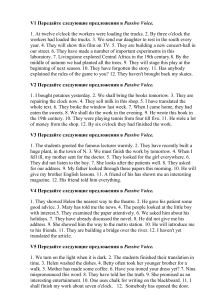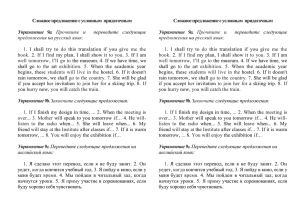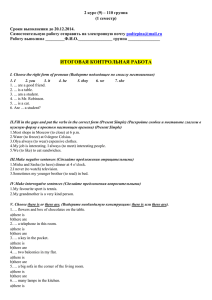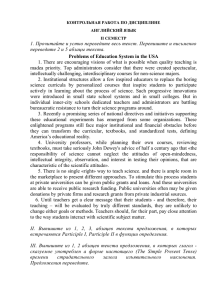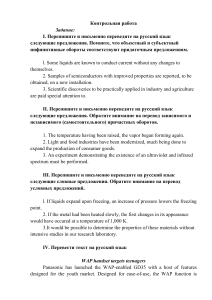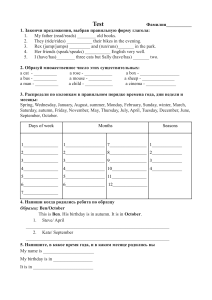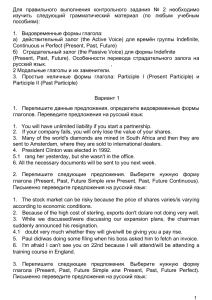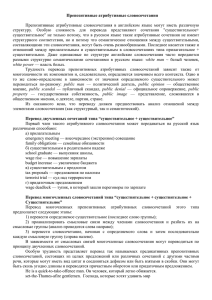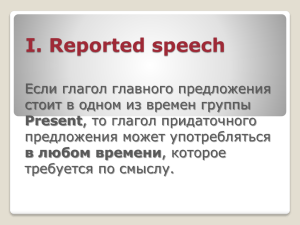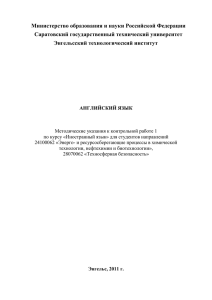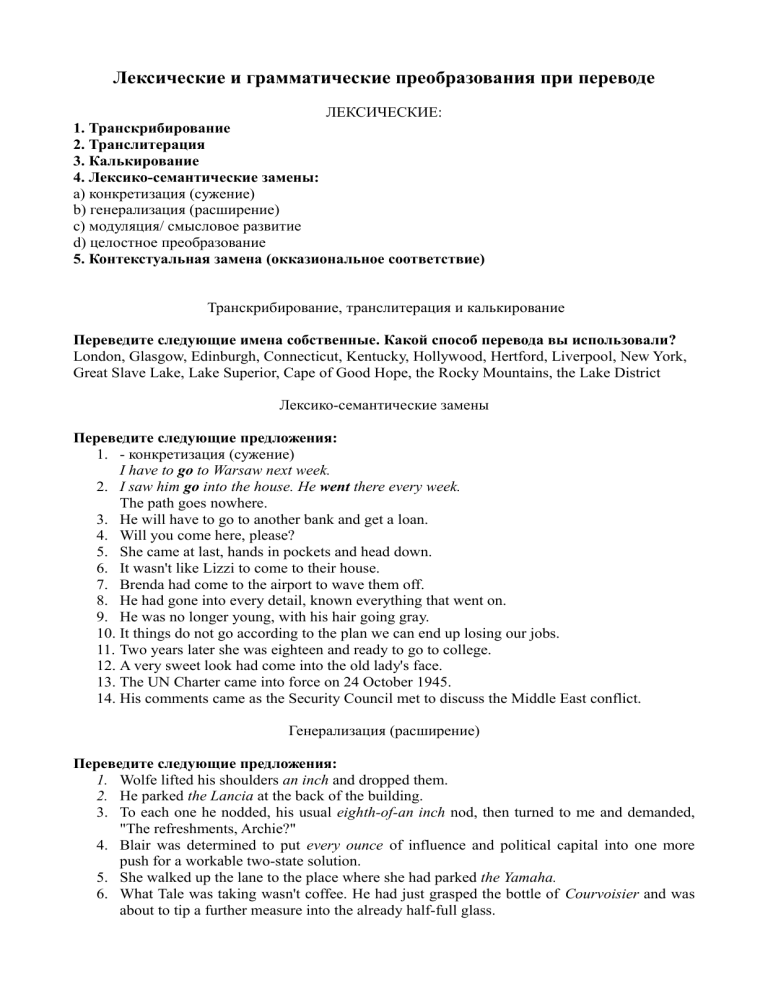
Лексические и грамматические преобразования при переводе ЛЕКСИЧЕСКИЕ: 1. Транскрибирование 2. Транслитерация 3. Калькирование 4. Лексико-семантические замены: a) конкретизация (сужение) b) генерализация (расширение) c) модуляция/ смысловое развитие d) целостное преобразование 5. Контекстуальная замена (окказиональное соответствие) Транскрибирование, транслитерация и калькирование Переведите следующие имена собственные. Какой способ перевода вы использовали? London, Glasgow, Edinburgh, Connecticut, Kentucky, Hollywood, Hertford, Liverpool, New York, Great Slave Lake, Lake Superior, Cape of Good Hope, the Rocky Mountains, the Lake District Лексико-семантические замены Переведите следующие предложения: 1. - конкретизация (сужение) I have to go to Warsaw next week. 2. I saw him go into the house. He went there every week. The path goes nowhere. 3. He will have to go to another bank and get a loan. 4. Will you come here, please? 5. She came at last, hands in pockets and head down. 6. It wasn't like Lizzi to come to their house. 7. Brenda had come to the airport to wave them off. 8. Не had gone into every detail, known everything that went on. 9. He was no longer young, with his hair going gray. 10. It things do not go according to the plan we can end up losing our jobs. 11. Two years later she was eighteen and ready to go to college. 12. A very sweet look had come into the old lady's face. 13. The UN Charter came into force on 24 October 1945. 14. His comments came as the Security Council met to discuss the Middle East conflict. Генерализация (расширение) Переведите следующие предложения: 1. Wolfe lifted his shoulders an inch and dropped them. 2. He parked the Lancia at the back of the building. 3. То each one he nodded, his usual eighth-of-an inch nod, then turned to me and demanded, "The refreshments, Archie?" 4. Blair was determined to put every ounce of influence and political capital into one more push for a workable two-state solution. 5. She walked up the lane to the place where she had parked the Yamaha. 6. What Tale was taking wasn't coffee. He had just grasped the bottle of Courvoisier and was about to tip a further measure into the already half-full glass. Модуляция/ смысловое развитие Переведите следующие предложения: 1. He saw that she was near tears. 2. You must have some discipline over your emotions. 3. He’d never drive under the influence of alcohol. 4. This point of view clashes with historical facts. 5. The gales which were the worst in living memory caused devastation in many regions. 6. “Does it make any difference?”. 7. “Daddy and I are going out to dinner. It’s Uncle Oliver’s birthday”. “You are always going out”. “No, honey. We haven’t been out all week”. 8. “Are your shoes all right? The dew’s so heavy now”. Целостное преобразование Переведите следующие предложения: How do you do? Never mind. Forget it. Shut up! Well done! In for a penny in for a pound. Push / Pull Контекстуальная замена (окказиональное соответствие) Текст 1 I had a fairy conventional upbringing and, although I was at grammar school, I drifted into street life. In some respects I think it was the consequence of having a workaholic father who exercised no supervision. While I did not respect his authority, I didn't dislike him. My feelings were neutral, and he had no influence on me. But I was brought up in the East End and there was a criminal element on the streets and it was easy to drift into crime. I think now that fathers need to work not so much at talking with their sons and trying to understand their problems, but reclaiming the authority that well-intentioned but misguided theories on raising children have undermined. This is nothing to do with returning to Victorian values, it is respecting the reality of what has always been and always will be the nature of the parent-child relationship.

